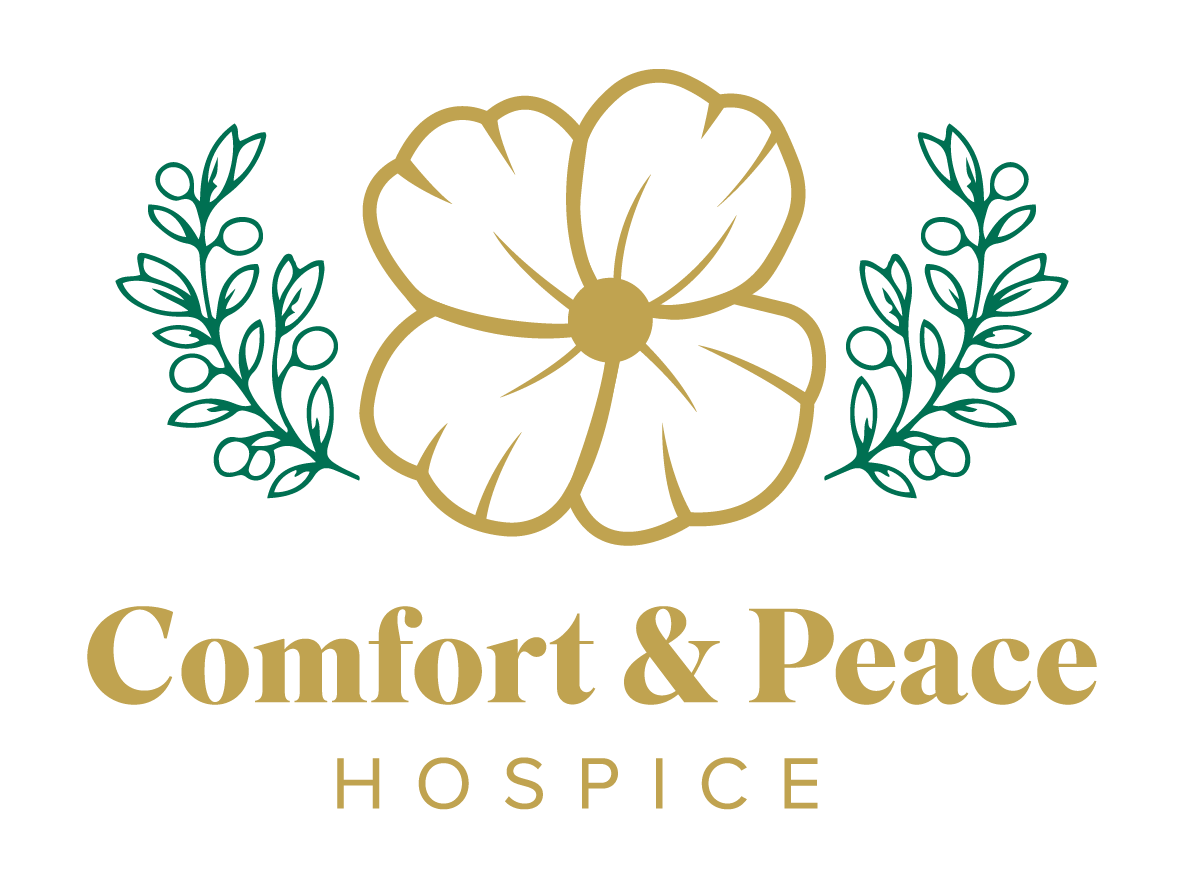he end of a person’s life can be a very distressing and difficult time. With all of the challenges that come with a person’s final days, they often need some additional support. This includes providing them with the psychological, physical, emotional, and spiritual comfort and care they need and deserve.
Comfort and Peace Hospice provides excellent support to patients in their time of need. We care deeply about our patients and ensuring their final days are as happy as possible. We believe all patients deserve to pass with dignity and comfort.
If your loved one or you have a life-limiting illness and are looking for some additional support towards the end, reach out to Comfort and Peace Hospice. Our experts will put together a custom treatment plan that meets all of the needs of your loved one or you.
Enjoy your final days in peace with the support of Comfort and Peace Hospice.
What is Hospice Care?
Hospice care is a form of additional support intended for patients with life-limiting illnesses. This form of healthcare helps to meet the physical, psychological, emotional, and spiritual needs of patients. In order to do this, hospice care providers offer therapy, physical support, and healthcare services.
Everyone’s journey is different. What we all have in common is that we all deserve to pass in peace and with dignity. Comfort and Peace provides patients with what they need to enjoy their final days.
Who is Hospice Care for?
Many people think of cancer when they hear “hospice care.” In reality, hospice care is an excellent option for a variety of different patients. Essentially, hospice care is for any patient that is reaching the end and needs some extra assistance.
Some common illnesses that patients suffer from that lead to the need for hospice care include:
- Heart disease
- Dementia
- Pulmonary disease
- Stroke
- Cancer
- Liver disease
- Renal disease
- and others
Hospice care isn’t just for the patient, though. The primary caregiver is often the loved one of a patient. While they may be happy to help out, providing full-time care for a patient can be extremely difficult and tiring. Many primary caregivers fall behind on their obligations and find themselves exhausted. Hospice care provides additional support for primary caregivers and allows for the caregiver to get some rest and get caught up on things that may have fallen behind.
In order to be considered for hospice care, a patient needs to be approved by two separate physicians. With that said, many physicians recommend hospice care for terminally-ill patients. You also must have a prognosis of around 6 months left to live. With that said, if you live beyond this period, you may still be a candidate for hospice care.
One factor that will need to be considered is insurance coverage. Speak with your insurance provider or Medicare to see what level of coverage is available.
How Does Hospice Care Work?
Hospice care takes a few different forms. Below are the most common types of hospice care:
Routine Home Care
Routine home care is very common. It involves a patient receiving hospice care at home. During this time, the patient will receive care from medical professionals, social workers, and even volunteers. Their spiritual needs are met, pain is managed, and they receive mental and emotional support. Routine home care provides patients with the peace they need to enjoy their final days.
General Inpatient Care
If a patient needs additional support for a period of time, general inpatient care may be required. During this process, the patient resides at a hospice care facility. They receive extra care that addresses symptoms and helps to stabilize them. Once the patient is stabilized, they can return home for routine care.
Continuous Care
If a patient is going through a crisis, continuous care may be required. This may be due to anxiety, extreme pain, and/or respiratory distress. Continuous care involves a patient being cared for anywhere from a few hours a day to a few full days. If the caregiver can address the core issues, they will. Otherwise, they will handle the symptoms until they pass.
Respite Care
While you may be doing an excellent job as the primary caregiver for your loved one, you may also need some time off to rest.
Respite care is a form of care that involves a patient checking into a facility for a short period of time. This form of care allows the primary caregiver to take a break and recharge. They are also able to take care of outside obligations that they may have fallen behind on. Once they have recharged their batteries, they can bring the patient home and continue care.
Patients receive top-quality care and support during respite care. If you are the primary caregiver, you don’t need to worry about your loved one. It is guaranteed they will be taken care of extremely well during your time off.
Nursing Home Vs Hospice: What’s the Difference?
Many people confuse nursing homes with hospice care. The difference is that a nursing home is a physical place in which care is performed, whereas hospice care is a type of care that can be performed anywhere. Actually, hospice care can be provided at a nursing home.
Providing Better Care
Reach Out Today!
Whether you live in a nursing home or you live in your own home, you can reach out to Comfort and Peace Hospice for additional support. We offer different forms of hospice care, and we are able to meet the physical, emotional, psychological, and even spiritual needs of our patients.
If you have a loved one that is terminally ill and you need some additional support, let us know. We can provide you with the help you need—whether it’s short-term or ongoing.
Comfort and Peace Hospice provides top-quality care for all of our patients. We look forward to meeting you and helping you through the final days of your journey.



